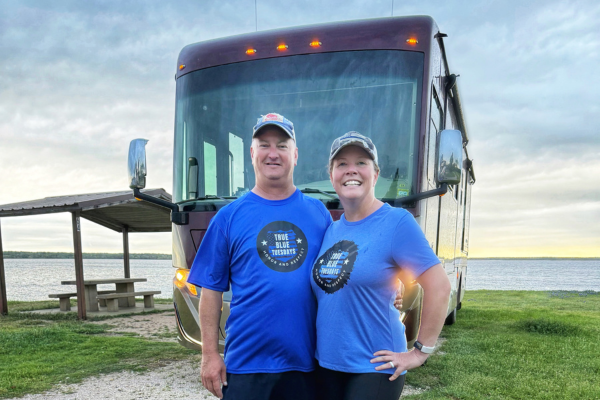
For many RVers, traveling the open road in a big rig is a dream come true. The freedom and flexibility of being able to take your home on wheels wherever you please is an incredible experience. However, not all roads and campsites are created equal when it comes to accommodating big rig RVs. That’s where the concept of “big rig friendly” comes into play.

Essentially, a big rig RV is classified as any RV over 40′ long. Regardless of the type of RV (motorhome, fifth-wheel, etc.), if your rig is over 40′ in length, you’ve got yourself a “big rig.” Knowing the height, length, width, and weight of your RV is extremely important.
So, what does it mean for an RV park or campground to be big rig friendly? In simple terms, it means that the facilities and amenities are equipped to handle the size and needs of larger RVs. This could include spacious pull-through sites, wide roads for easy navigation, and ample clearance for slideouts and awnings. Some campgrounds may also offer additional services such as on-site RV wash stations, tire pressure monitoring, and RV-specific dump stations.
When you’re traveling with a big rig, paying attention to whether a campground is big rig friendly is crucial. Trying to navigate narrow roads or maneuvering a large RV into a tight campsite can be incredibly stressful and, in some cases, dangerous. Additionally, if a campground is not equipped to handle larger RVs, you may find yourself with limited options for parking, or worse, unable to find a suitable spot at all.

Tips for Finding Big Rig Friendly Campgrounds
Finding campgrounds that are big rig friendly can sometimes be a challenge. Many campgrounds are not equipped to accommodate large vehicles, and navigating through narrow roads and tight spaces can be daunting. Fortunately, with some research and planning, finding big rig friendly campgrounds can be made much easier.
First and foremost, it is important to do thorough research before setting out on your journey. There are several resources available online that list big rig friendly campgrounds, including websites and forums dedicated to RV and trucking communities. These resources can provide valuable information about campgrounds that are spacious, have easy access, and can accommodate large vehicles.
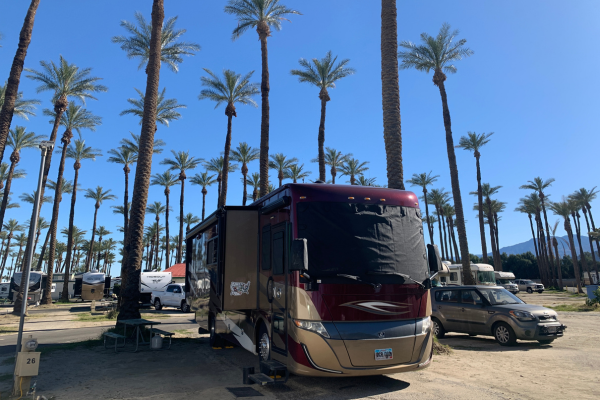
When researching campgrounds, it is important to take note of the amenities and facilities that are available. Look for campgrounds that offer pull-through sites, large parking areas, and wide roads. It is also beneficial to read reviews from other travelers to get a better understanding of the campground’s suitability for big rigs. Sometimes there are useful tips or clear statements, such as this is “not big-rig friendly,” right in the reviews.
Another important aspect to consider is the location of the campground. Look for campgrounds that are conveniently located near major highways or interstates, making it easier to access and navigate with a big rig. Also consider the surroundings and nearby attractions to ensure that the campground provides a pleasant and enjoyable experience.
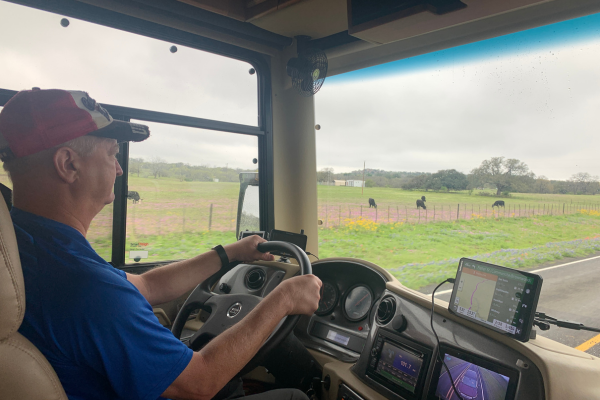
In addition to online resources, it can be helpful to contact the campground directly to inquire about their accommodations for big rigs. Asking specific questions about their site sizes, road conditions, and any potential restrictions can help in determining if the campground is suitable for a big rig. Using Google Maps Street View to confirm what the roads and campground look like is very useful, too.
Besides researching the campground itself, RV drivers must also be aware of the surrounding roads and any low-hanging tree branches that can cause damage to their vehicle. It is crucial to study the route carefully and choose roads that are wider and have minimal obstacles.
When navigating narrow roads with big rigs, it is essential to drive at a slower pace to avoid potential damage to the vehicle or surrounding environment. This means being vigilant of any oncoming traffic and anticipating the need to make sharp turns or abrupt stops.
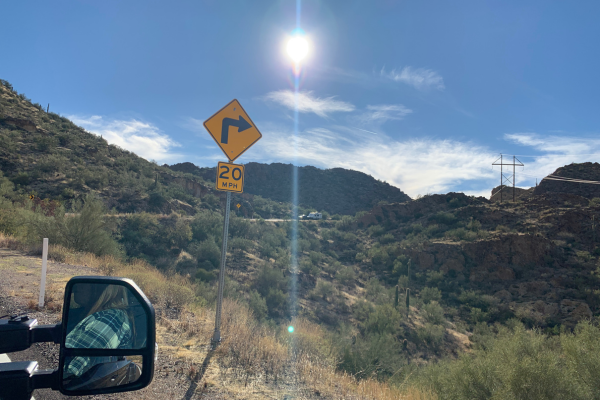
Lastly, it is important to plan and book your stay well in advance, especially during peak travel seasons. Big rig friendly campgrounds can fill up quickly, so securing a reservation ahead of time is crucial to ensure availability.
In conclusion, finding big rig friendly campgrounds requires thorough research, planning, and utilizing available resources. By taking the time to find campgrounds that are accommodating to large vehicles, you can enjoy a stress-free and comfortable camping experience. With these tips in mind, you can embark on your journey with confidence and peace of mind. So, before you hit the road, take the time to do your research and find the best big rig friendly campgrounds to make the most of your RV adventures.
|
We are a full-time RV couple who recently retired from Law Enforcement, downsized and sold almost everything and have been traveling full time since October 2021. We share our adventures as we learn about RV life & cover RV travels, Finance, DIY RV projects, destination reviews, and other RV living details. We hope you join us as we document our adventures Chasing Our Sunshine throughout the country and beyond… Chasing Our Sunshine Joel, Deb & Maya. |


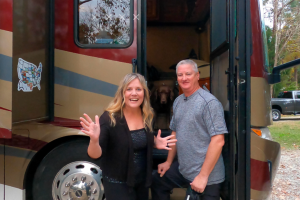
Leave a Reply